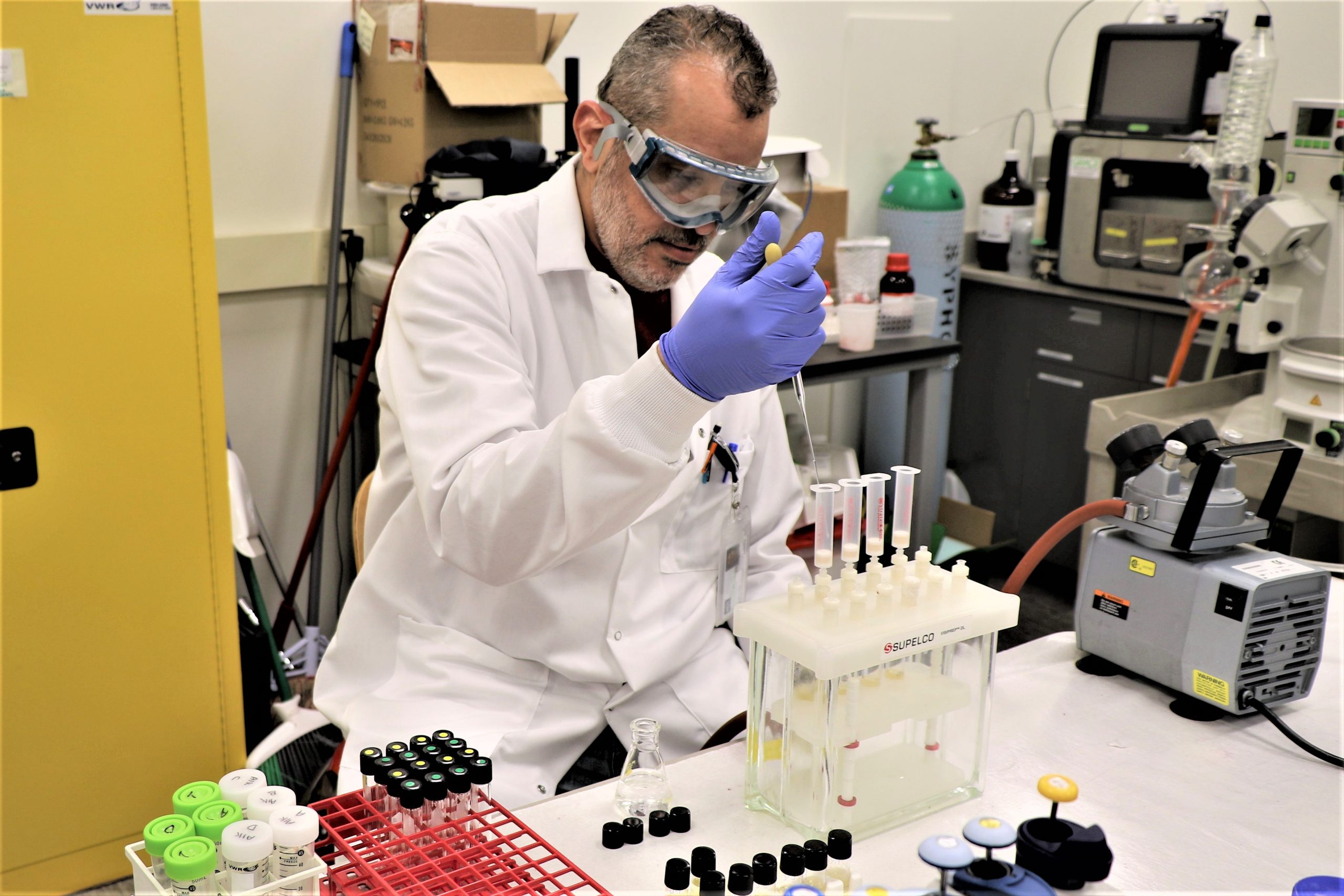In early February, a small number of poisoning cases in the Fraser Health region ended up in the hospital after consuming a meal made with a product labeled as “sand ginger powder”. Symptoms included cardiovascular illness, vomiting, and dizziness.
Based on the circumstances and reported symptoms the BC Drug and Poison Information Centre suspected the sample may have contained Aconite (monkshood) root. The BC Centre for Disease Control (BCCDC) subsequently provided a sample of the product to the BCIT Natural Health and Food Products Research Group (NRG) for confirmatory analysis.
Dr. Mohamed Albadry, performed the analysis and determined the sample contained relatively high levels of the presence of aconitine alkaloids confirming the sample contained toxic constituents from Aconitum. This confirmation resulted in Fraser Health and the BC Centre for Disease Control (BCCDC) issuing a public health warning to not consume and discard the sand ginger product identified.
Ground Aconitum root (also known as “the queen of poisons”, aconite, monkshood, wolf’s bane, leopard’s bane, women’s bane, devil’s helmet, or blue rocket) looks very similar to ground sand ginger root. One major difference is aconitum contains toxic alkaloids that can cause nausea, vomiting, dizziness, weakness, irregular ventricular contractions, and in severe cases, death.
“Our phytoanalytics lab has leading-edge technology and is capable of performing detailed analysis and botanical authentication on products,” says Dr. Michael Chan, NRG Research Associate “Public health is a top priority and we have a long history of working with both regulators and companies to improve product quality and ensure the safety of botanical products on the market.”
ABOUT BCIT NATURAL HEALTH AND FOOD PRODUCTS RESEARCH GROUP
The BCIT Natural Health and Food Products Research Group (NRG) addresses issues of product quality, process improvement, and human health using basic and applied science along with state-of-the-art technology. Our goal is to ensure that all Canadians can achieve the potential health and economic benefits offered by medicinal plants, natural health products, and the food industry.
With an emphasis on product sources and quality standards, our projects focus on health policy, regulatory affairs, product formulation, botanical authentication, analytical method development and validation, chemometrics, and therapeutic monitoring for pre-clinical and clinical studies.
Our research and development are closely linked with the priorities and policies created within the provincial and national natural health product, food, and agricultural industry, and by the government agencies regulating these sectors.
